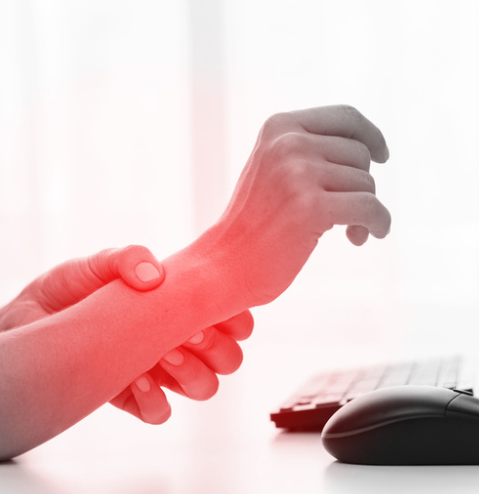Joint hypermobility syndrome
Hypermobility syndrome, also known as joint hypermobility syndrome (JHS), refers to a condition characterized by increased flexibility and excessive range of motion in multiple joints throughout the body. It’s often associated with symptoms related to joint instability and musculoskeletal issues.
Moreover, this condition is a connective tissue disorder. Thick bands of tissue (ligaments) hold your joints together and keep them from moving too much or too far out of range. In people with joint hypermobility syndrome, those ligaments are loose or weak.
Symptoms of Joint hypermobility syndrome
- Joint Instability and Pain. Increased joint flexibility can lead to joint instability, causing pain, stiffness and a feeling of “looseness” or “giving way” in the affected joints.
- Muscle Weakness and Fatigue. Chronic muscle fatigue and weakness might be present due to the body’s efforts to compensate for joint instability.
- Soft Tissue Injuries. Individuals with this condition are more prone to sprains, strains and dislocations due to the laxity of their joints.
- Chronic Pain. Chronic musculoskeletal pain, especially in the joints and muscles, is a common symptom in some individuals.
Is joint hypermobility syndrome the same as Ehlers-Danlos syndrome?
Joint hypermobility syndrome can be a sign of a more serious underlying genetic condition. These conditions are called Heritable Disorders of Connective Tissue (HDCT). Rare medical conditions associated with this condition include:
- Ehlers-Danlos syndrome. A group of conditions that affect your cartilage, bone, fat as well as blood. A defect in collagen — the protein that adds flexibility and strength to your connective tissue — causes this syndrome.
- Marfan syndrome. A condition that affects your connective tissue. A defect in the gene responsible for building fibrillin as well as elastic fibers — a major part of your connective tissue — causes this syndrome.
- Down syndrome. A genetic disorder that affects the way your brain and body develop. People with Down syndrome are born with an extra chromosome.
Are you suffering from any foot condition? At The Chelsea Clinic, we can help. One of our podiatrist can assist and then recommend what treatments are best to get you back on track. Podiatrist South Kensington
Book an appointment here or you may call us at +44 (0) 207 101 4000.
We hope you have a feetastic day!
-The Chelsea Clinic and Team




